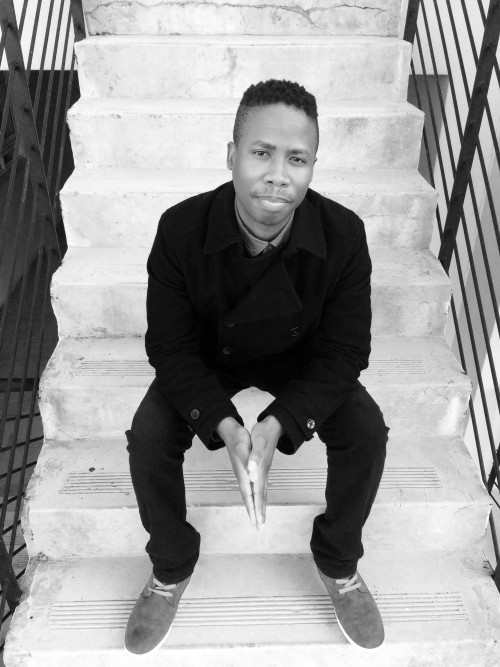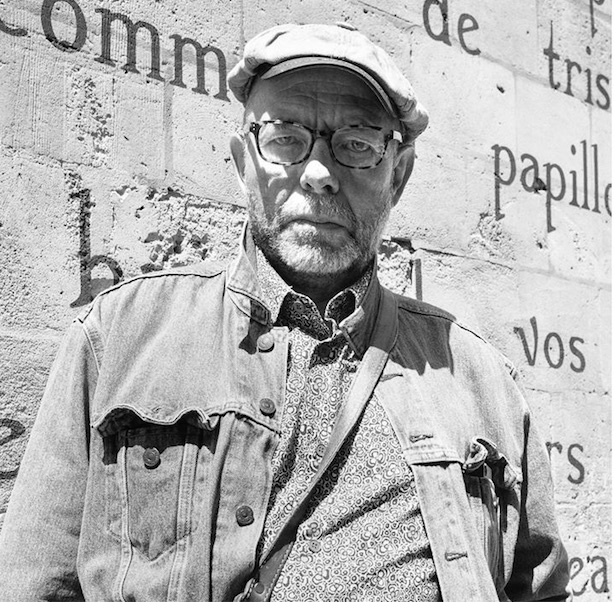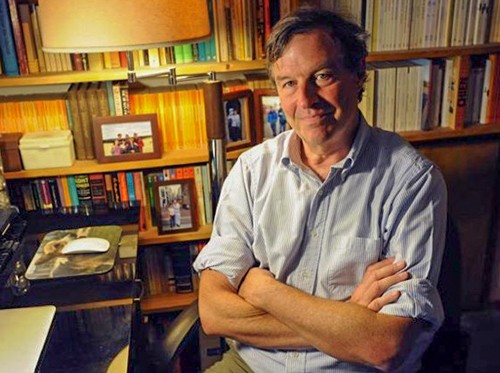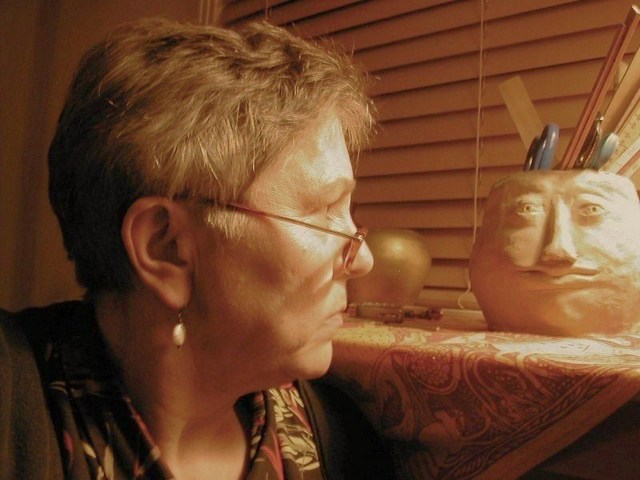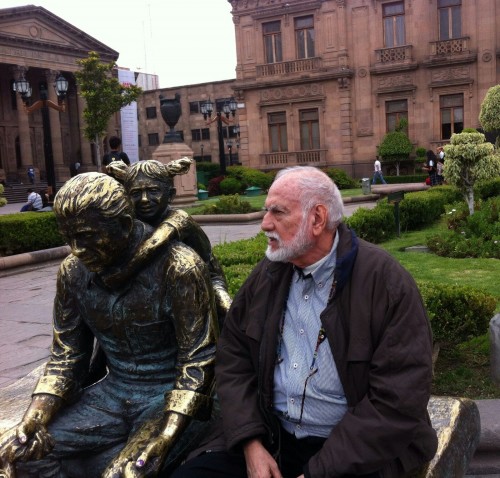It’s the April issue, the vernal surprise, the annual ritual of renewal, the turning of the year, the lengthening of days, mud season in Vermont, moments of astonishing optimism for no reason, that issue. We have amazing things for you. We’ll knock your socks off. You’ll find it more entertaining than Donald Trump and Ted Cruz (okay, well, maybe not).
We have a couple of group items this issue. The first is a massive nine-person interview/conversation on the subject of Latino writing in the United States, Mexico and Puerto Rico today. Jonathan Marcantoni is the moderator/interlocutor. The conversation is lively, startling. Punches are not pulled. There are also book lists and reading recommendations. This is the state of the art.
I think this is a destructive mindset that is born from a marginalized, colonized perspective. The Oppression Olympics. The Authenticity Maze. The relative slice of the literary representation pie is not large enough for Latinos to start fighting over. I don’t know which Latino group “dominates” who. (The question makes us sound like we’re all battling for literary supremacy in the octagon.) —Rich Villar
Ben Woodard reviews South African author Masande Ntshanga’s debut novel The Reactive (we also have an excerpt coming).
Masande Ntshanga’s engrossing debut novel, The Reactive, unfolds during the Mbeki presidency. Lindanathi, a young HIV infected man in Cape Town, spends his days huffing industrial glue with his friends Cecelia and Ruan. The trio work together to illegally sell Lindanathi’s extra ARV supply—Cecelia and Ruan are not infected, and Lindanathi is a lucky ARV recipient—to local reactives for quick cash. In lieu of chapters, the novel is broken into five parts, and the first dedicates itself to establishing the relationship between Lindanathi, or Nathi, and his friends, who casually float in and out of day jobs, HI Virus group meetings, parties, and cloudy conversations. Nathi tells his story in first-person POV, and the reader is swiftly immersed into the daily ennui of the gang. In many ways, his life is one of limbo, and death’s inevitability frequently crops up, whether Nathi claims, “It’s still a long stretch of time before I die,” or plays games like Last Life, which “is the name we’ve come up with for what happens to me during my last year on the planet.” —Ben Woodard
 Cynthia Flood
Cynthia Flood
We have a brand new story from Cynthia Flood, who has appeared here before and only gets better. This one is weird in the best way, a night wanderer, the clopping of police horses…
Strong feet stepped into the boy’s dream, came nearer down the hall, and he sat up, but the sounds went past, outside.
Quick, to the window.
Down the dark quiet street came four horses, two by two, with police on top. Streetlights shone on the animals’ rumps, the riders’ yellow vests. Clop clop. Harness glinted, tails waved, manes lifted and subsided. The horses too wore reflective yellow, in bands round their ankles. —Cynthia Flood
We have poems from Mahtem Shifferaw’s debut colletction:
I wasn’t taught to notice one’s colors;
under the sun, everyone’s skin bounces streaks of light.
Which do I claim? It is difficult to expla
the difference between African & African American
the details escape me, thin paper folding the involucre of a burning fire.
—Mahtem Shifferaw
And a gorgeous poem from Ruth Lepson on the fascinating American artist Cy Twombly who spent much of his working life in Europe, coming after the Abstract Expressionists and combing their influence with a vast interest in Classical art that surrounded him in Italy.
your chair looks kinda wobbly
cy twombly
I think you’re an anomaly
you’re practically
sliding off the chair
the window’s
broken by lines in a grid
it’s time to stand–
but sit for another minute
give us your specifics
wait — you don’t care
what you get across
or to whom
……………………—Ruth Lepson
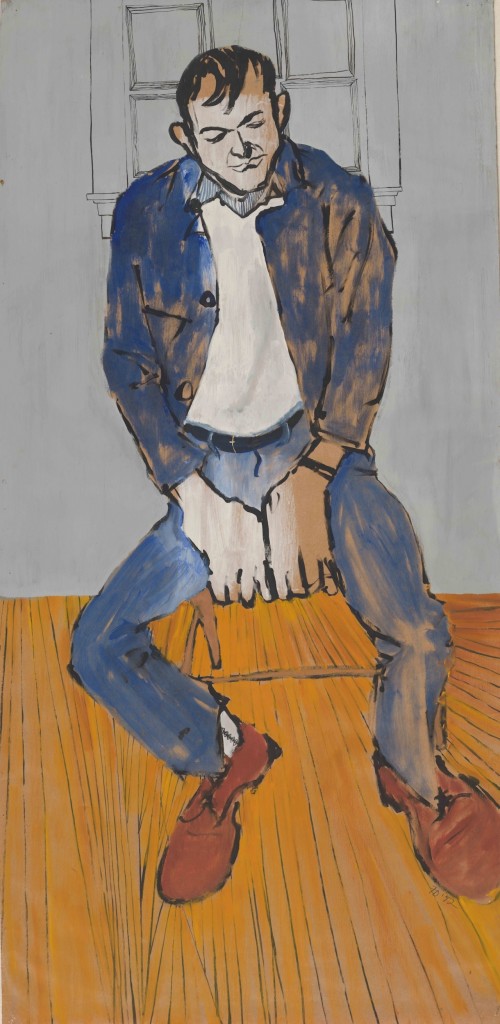 Portrait of Cy Twombly, Fielding Dawson
Portrait of Cy Twombly, Fielding Dawson
Pierre Joris, who also has appeared here before (as a poet, translator and memoirist), returns with a segment of memoir.
Myth, I had learned that very year upon encountering the work and the person of the American poet Robert Duncan — who was to write one of greatest anti-Vietnam war poems the very next year —, the word “myth,” “mythos,” is akin to “mouth,” i.e. myth is the story told, the story that accompanies the ritual action, some action that starts out as, or wants to turn itself into, exemplary ritual. But maybe it is the retelling of the story — whatever it is — that recreates the action that turns the story into ritual and thus self-reflectively creates the myth. —Pierre Joris
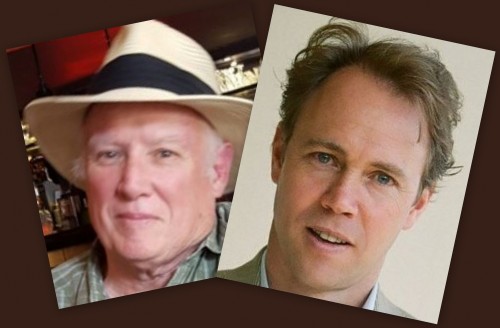 Richard Jackson & Robert Vivian
Richard Jackson & Robert Vivian
Richard Jackson, a poet, and Robert Vivian, in his latest incarnation as an essay writer, have combined their voices to produce a book of poems and essays from which we have a preview excerpt.
All at once they picked themselves up from the barren fields and started walking toward the horizon, silent, solemn march going to the stars even as they tried to become them and rose the thrust and the warbler and the startled robin and I could see that the stones were naked but unabashed and unashamed wanting only to be rinsed again and rose the wind and the dust and where were the stones going but to another place not of their keening and to watch them go I felt abandoned and I did not ask the stones why… —Robert Vivian
Warren Motte favours us with a really fascinating essay on exoticism and how recent French novelists have used/portrayed America in their work.
I realize, all of a sudden, that my title sounds like the name of a rehab facility in Arizona, a place where “happiness” is very rare indeed and where the “shores” are notional ones, at best. I am quite certain that Baudelaire was not thinking of such a place, as he conjured up a luminous vision of utopia in the first quatrain of his sonnet, “Exotic Perfume”:
When, with both my eyes closed, on a hot autumn night,
I inhale the fragrance of your warm breast
I see happy shores spread out before me,
On which shines a dazzling and monotonous sun.
—Warren Motte
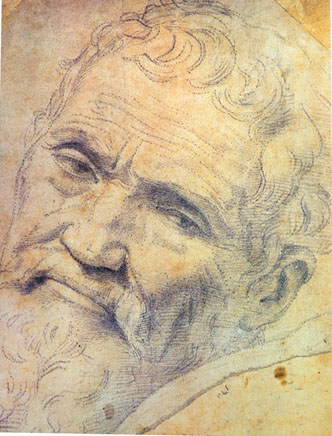 Michelangelo by Daniele da Volterra, 1533
Michelangelo by Daniele da Volterra, 1533
Julie Larios is back with a new Undersung essay, this time focusing on the sculptor Michelangelo, who also happened to be a surpassing poet. For centuries only a sanitized version of his poetry existed in print…
For more than 200 years, this version of the poems – “discretely doctored” to disguise the homosexual nature of them – was the only one available. By the mid-1800’s scholars began to look back at the originals for comparison; in 1893 the British homosexual activist and poet/critic John Addington Symonds offered a more authentic version, correcting the changed pronouns (from “she” back to “he”) and adding in several of the more explicit poems not included in the 17th-century edition. By 1960 a complete edition was published that included 400 pages of editorial notes referring to the originals. —Julie Larios
We also have poems from the Mexican poet Óscar Oliva. Yes, yes, we are beginning to tap a steady flow of Mexican lit.
I am just one more shoulder in the crowd marching through,
teargas fumes me,
derailed trains burnt out at the terminal
ripped up tracks and the attack
of the police, of the army, of the riot squad
all in battle formation,
the Zócalo is a rifle butt in the face,
there’ll be more battles… —Óscar Oliva
Tom Simpson returns with another essay on his beloved Bosnia-Herzegovina. Once again his guide and inspiration is the wonderful poet Goran Simic (who also has appeared here on NC).
Like an existentialist’s bad joke, Goran’s driveway sits on a dangerous curve. The circular, convex mirror posted across the street, where the sidewalk is, helps only so much. All it tells you is whether a car is bearing down on you, right now, from the left. Once you make your move, all bets are off. The best you can do is utter a prayer, or mutter a curse, before you lurch into the unknown. —Thomas Simpson
And there is, as I always say, more. John Proctor reviews Patrick Madden’s new book of essays. We have an excerpt from the nonfiction anthology Dirt. There will be something from Ireland and a new NC at the movies. And Nance Van Winckel returns with an ekphrastic extravanganza, a series of creative prose responses to paintings by Kay O’Rourke, many of them by students from the Salish Language School in Spokane, Washington.
There may even be more, or there may be changes, things that surprise even me. There always are.

